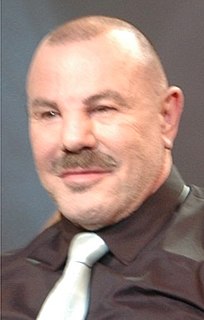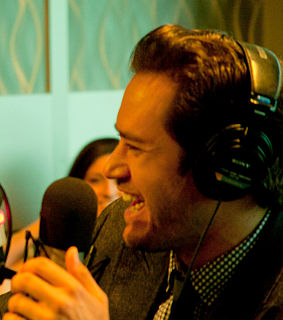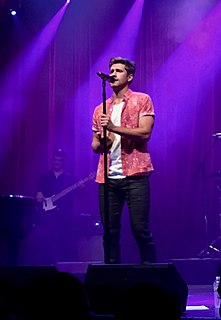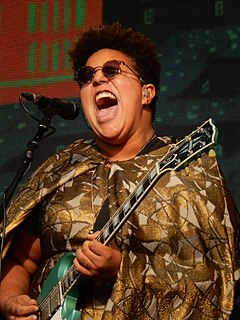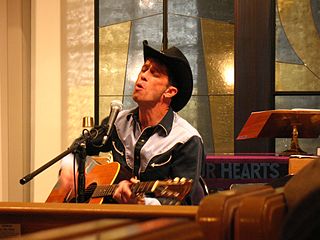A Quote by Micky Dolenz
When I do my solo concerts, I'm used to being on the stage for two hours solid, singing 16 songs. And when I did 'Funny Thing,' I was on the stage the whole time. This is much more difficult. It's the difference between racing and sprinting. This is sprinting. And I have to learn to pace myself.
Related Quotes
If you're up on a stage, naked and solo and singing songs to people, there's not much place to hide, so you may as well confess what you want to confess and say what you want to say, whatever that is. Some songs just turn out as being more about me, and some are more through the eyes of other people, or third-person descriptions of people.
Whether it's animated, whether it's live-action, whether it's Broadway, whether it's television, a musical is a musical is a musical. So, pretty much you approach the songs in pretty much the same way. The difference might be that in a film you have a close up. On stage you don't. So there are more songs on the stage because the songs are kind of the close up.
I got on stage and I went, "Oh wow. No stage fright." I couldn't do public speaking, and I couldn't play the piano in front of people, but I could act. I found that being on stage, I felt, "This is home." I felt an immediate right thing, and the exchange between the audience and the actors on stage was so fulfilling. I just went, "That is the conversation I want to have."
That's the thing about stage: It's something you can't find anywhere else. It's a two-and-a-half, three-hour experience, and it's a real relationship. You're sending out energy from the stage, but the audience is giving you back so much also, so that's also lifting you and pushing you forward as you're performing and giving you so much energy. You can't find it anywhere else, and that's why people get addicted to being on stage, and when they're not on stage are kind of looking for that and constantly searching for it.
I tend to prefer the band thing. I think playing solo is good for about 45 minutes. I remember when I was on my solo tour that I got a chance to play with Martin Stephenson of the Daintees. He's now refashioned himself as almost a delta blues guitar player and he's got all the technique, all the persona and the charisma on stage. I think I do too, but I'm more of a first position strummer guy with a little bit of filigree work. I could listen to him for hours; I could listen to myself playing solo for about half an hour!
I had to come out on stage with my little staff and robe and I had this sun on top of my head that my mom made - that was the first time I was ever on stage singing in front of anybody. I realized that I was one of the best acts of the night but I didn't give singing much thought after that. I was really into playing baseball.
An interesting difference between new and experienced stage managers is that the new stage manager thinks of running the show as the most difficult and most demanding part of the job, whereas the experienced stage manager thinks of it as the most relaxing part. Perhaps the reason is that experienced stage managers have built up work habits that make then so thoroughly prepared for the production phase that they [can] sit back during performances to watch that preparation pay off.
My whole life at a certain point was studio, hotel, stage, hotel, stage, studio, stage, hotel, studio, stage. I was expressing everything from my past, everything that I had experienced prior to that studio stage time, and it was like you have to go back to the well, in order to give someone something to drink. I felt like a cistern, dried up and like there was nothing more. And it was so beautiful.

